Living off-grid in Spain, whether in the countryside or urban areas, provides an opportunity to live in harmony with nature, create a sustainable lifestyle, and develop a deeper connection with the environment. However, it’s not just about disconnecting from the power grid and building a cabin in the woods. It’s about making a conscious choice to live in accordance with your values, to cultivate self-reliance, and to redefine what it means to be a part of society.
Choosing between rural or urban off-grid living ultimately depends on your personal preferences and lifestyle. Both options offer unique benefits and challenges, from growing your own food in the countryside to creating digital ventures in the city. Regardless of the path you choose, the key is to create a life that aligns with your inner compass.
- Living off-grid offers an opportunity to reconnect with nature and live a more sustainable lifestyle.
- Both rural and urban off-grid living offer unique benefits, from growing your own food to creating digital ventures.
- Choosing between rural and urban off-grid living depends on personal preferences and lifestyle.
- Living off-grid requires careful planning, especially in terms of financial and legal considerations.
- The key to successful off-grid living is creating a lifestyle that aligns with your inner compass.
Living in rural areas vs. urban areas off the grid in Spain
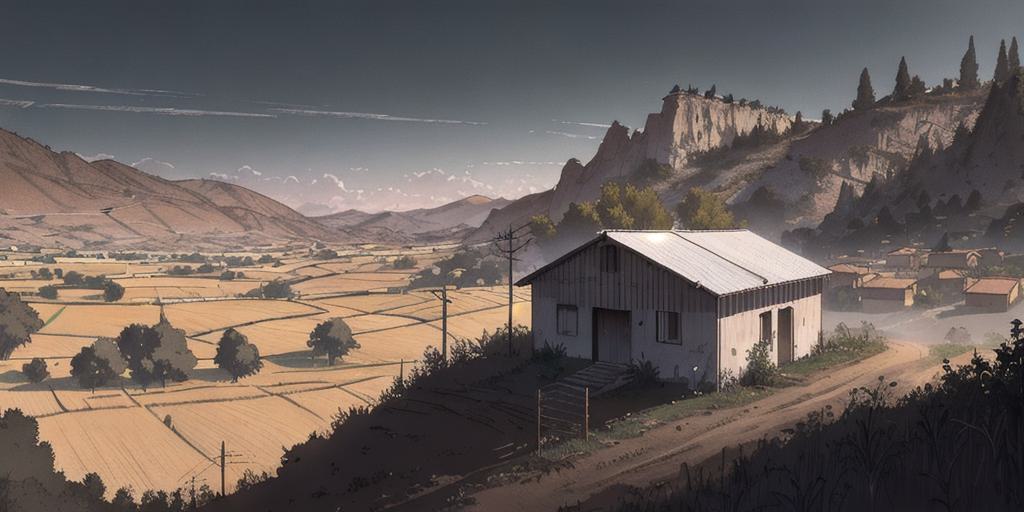
Embracing the Rhythm of Rural Life
As we plunge into the untamed beauty of rural Spain, we find an alluring escape from the engineered, pixelated world that we’ve become all too accustomed to. The appeal is tangible: a chance to reconnect with the Earth, to slow down, to savour the simple pleasures of life. But, this is not just about trading skyscrapers for olive groves. It’s about adopting a new rhythm, a new worldview, one that embraces the cyclical nature of life rather than the linear patterns of modernity.
Living off-grid in rural Spain, you’ll not only become an active participant in the ecosystem but also a silent observer, watching seasons come and go, feeling the life force of nature pulsate through the very air. The work is real. You’ll find your hands deep in the rich Spanish soil, nurturing your own food from seed to harvest. The triumph is real. There’s nothing quite like the taste of a tomato you’ve grown yourself, still warm from the sun.
The Urban Off-Grid: A Different Kind of Wilderness
On the other side of the spectrum, there’s off-grid living in Spain’s urban landscapes. Here, the wilderness is a different kind: a jungle of concrete and steel, of silicon and binary code. The off-grid life in the city trades the physical for the digital, the tangible for the virtual. And while you’re still escaping the 9-5 grind, you’re engaging in a different kind of cultivation. Instead of plants, you’re growing ideas, projects, and digital ventures.
Living off-grid in the city doesn’t mean you’re detached from nature. It simply means you’re finding a new way to coexist with it. You might have solar panels instead of a garden, a virtual meeting instead of a village gathering. But, you’re still connected, still part of the larger whole, still contributing to a more sustainable way of life.
Choosing Your Path: A Matter of Personal Resonance
Whether you choose the rural or the urban path is ultimately a matter of personal resonance. It’s about finding where you fit in the grand scheme of things, where your heart feels most at home. Are you captivated more by the whispering leaves of an olive tree or the humming servers of a co-working space? Do you thrive in the tranquility of a village or the pulsating energy of a city?
Remember, living off-grid doesn’t mean abandoning civilization. It means redefining it. It means creating a lifestyle that resonates with your values, that empowers you to live consciously, sustainably, and authentically. Whether you find that in the bucolic hills of Andalusia or the bustling streets of Barcelona, the key is to make the choice that aligns with your inner compass.
Costs and budgeting for off-grid living in Spain
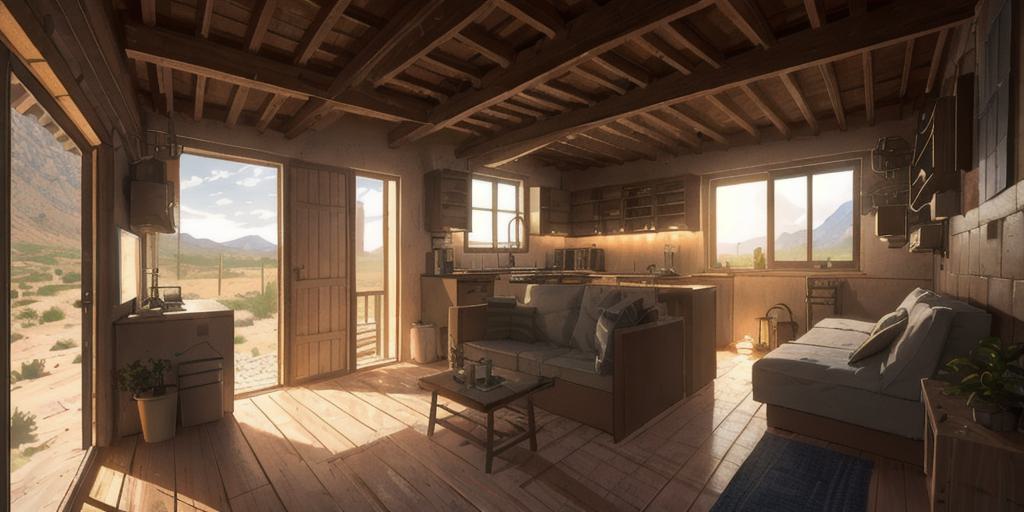
Decoding the Financial Implications
The transition to off-grid living is not just a lifestyle adjustment, but it also involves a significant shift in your financial habits. The monetary aspect of this transition can be compared to the algorithm of an online business, where initial input is substantial, but the returns, in terms of savings and sustainability, are exponential over time. The upfront costs may appear overwhelming; however, the benefits and savings are long-term, much like the ROI seen in certain digital marketing strategies.
Deconstructing the costs associated with off-grid living in Spain, we can categorize them into three main sections: initial setup, maintenance, and potential income sources.
Initial Set-Up Costs
Imagine you’re about to launch a new product in the digital market. The initial phase requires considerable investment. Similarly, setting up an off-grid lifestyle has some upfront costs. These include the price of the land or property, installation of renewable energy sources such as solar panels or wind turbines, water systems, and possibly, a sustainable waste management system.
However, the beauty of these investments is that they are a one-time expenditure and offer returns for years, just like the benefits of a successfully launched product or service in the online market. Furthermore, the cost of renewable energy installations is decreasing each year, making it a more accessible option for many.
Maintenance and Ongoing Costs
Just like an online business requires regular updates and maintenance, off-grid living also comes with ongoing costs. These include maintenance of your renewable energy systems, property upkeep, gardening or farming expenses, and possibly some taxes. However, when you compare these with monthly utility bills and other urban living expenses, the costs are usually lower.
Apart from that, living off-grid encourages a minimalist lifestyle, reducing unnecessary expenses and promoting a more conscious way of living. The idea is to create a self-sustaining cycle that aligns with your life rhythm, much like the circular economy concept in the digital world.
Potential Income Sources
Living off-grid does not mean cutting off from the world. On the contrary, it opens up new income possibilities. Similar to how digital nomads utilize the internet to earn an income while travelling, off-grid living also allows for remote work opportunities. Moreover, the land itself can become a source of income, through farming, animal rearing, or even rural tourism. The key is to find a balance between your lifestyle and your income sources.
Just like embarking on a new business venture, transitioning to off-grid living requires careful financial planning and budgeting. It’s about taking calculated risks and making strategic investments for a sustainable future. Remember, the goal isn’t just to escape the 9-5 grind, but to create a lifestyle that resonates with your inner self, a lifestyle that is in harmony with nature, yet sustainable in the long run.
Off-grid living is a journey of self-discovery and reinvention. It’s about creating your own path, your own rules. And just like in the world of online entrepreneurship, the only limit is your imagination. So, are you ready to embrace the off-grid lifestyle in Spain? It’s time to make a choice that aligns with your inner compass. For more insights and personal stories on off-grid living, check out this guide.
Sustainable energy sources for off-grid homes in Spain
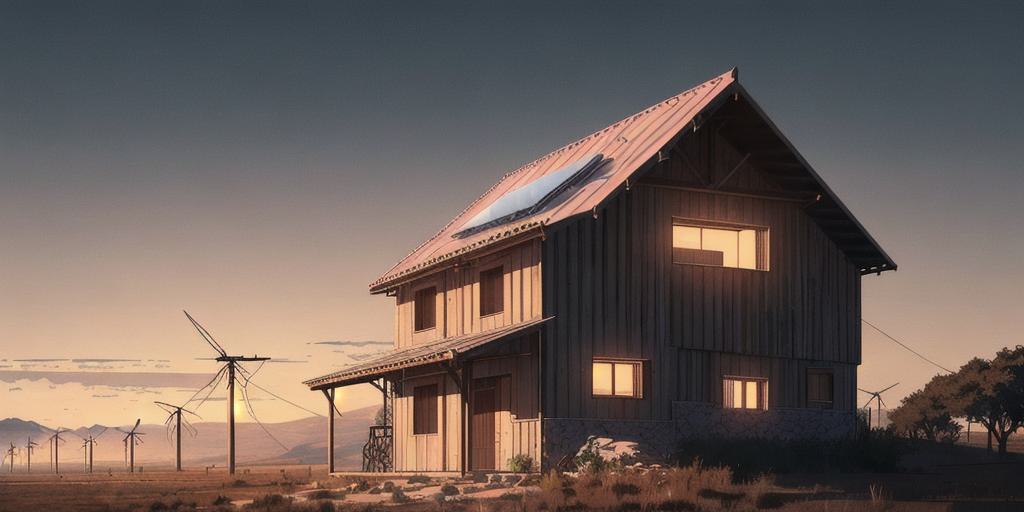
Embrace the Spanish Sun: Solar Energy
Living off-grid in sunny Spain brings to mind a key sustainable energy source: solar power. This is not only due to the country’s abundant sunshine but also its rapid strides in harnessing solar energy. According to a report, almost 14% of Spain’s electricity generated in 2020 was from solar energy. And the beauty is, you don’t need a massive solar farm to reap its rewards. With the right setup, you can generate enough electricity for your off-grid home.
Investing in solar energy is akin to investing in a promising start-up. There’s an initial investment, but the long-term returns, both financially and environmentally, are significant. Plus, the plummeting costs of solar components make it an increasingly attractive option. As stated in an article, the costs for solar components have decreased by about 50% since 2013.
Wind Energy: Harnessing the Breeze
Spain’s diverse geography also provides ideal conditions for wind energy. Like an online business tapping into various markets, diversifying your energy sources can significantly enhance the sustainability of your off-grid lifestyle. Wind turbines, while requiring a larger initial investment, can offer substantial returns in wind-rich regions.
It’s much like setting up a marketing campaign where the initial groundwork requires effort, but once it’s up and running, the benefits are continuous. A news article points out the importance of infrastructure development for the uptake of renewable energy, something that Spain is progressively working towards.
The Power of Interconnectivity
Living off-grid doesn’t mean severing all ties with the outside world. In fact, strategic interconnectivity can bolster your energy sustainability. Much like how a digital entrepreneur leverages the internet to connect with a global audience, off-grid homeowners can connect to local energy grids. This allows for the exchange of surplus energy, potentially providing an additional income source.
However, this requires careful planning and coordination, akin to managing an online business. As per an analysis, achieving a 10% interconnection level by 2020 is a significant goal for the European Union, and Spain is one of the countries where efforts need to be stepped up.
In summary, living off-grid in Spain offers various sustainable energy options. By strategically investing in solar and wind energy, and leveraging interconnectivity, you can create a self-sustaining lifestyle that aligns with nature while also keeping up with the digital world. Remember, just like in online entrepreneurship, success in off-grid living requires foresight, strategic planning, and a willingness to adapt to new advancements.
Water collection and filtration methods for off-grid homes in Spain
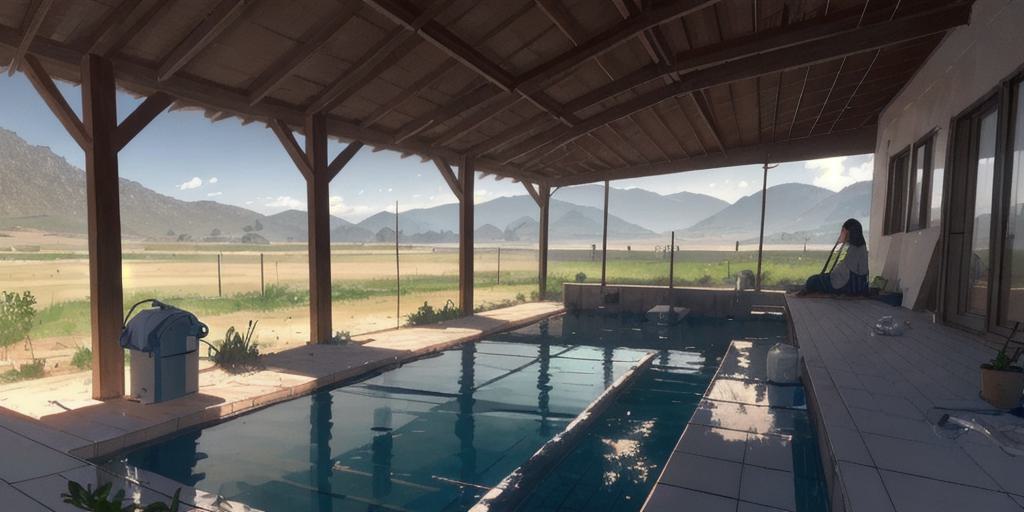
Quenching Your Thirst: Rainwater Harvesting
Living off-grid is akin to venturing into the uncharted territories of digital entrepreneurship. It requires creativity, resilience, and the ability to tap into underutilised resources. One such resource that comes abundantly, especially in the rain-rich regions of Spain, is rainwater. With the right setup, you can collect, store, and filter rainwater for your daily needs.
Think about rainwater harvesting as a growth hacking strategy. Just as a digital marketer leverages untapped markets to increase revenue, you can utilise rainwater to reduce your reliance on traditional water supplies. An initial investment in a good rainwater collection system can yield long-term dividends that contribute to a sustainable off-grid lifestyle.
Going Natural: Spring and Well Water
Like discovering a niche in the saturated market of the internet, natural springs and wells offer an invaluable water resource that is often overlooked. These natural water sources, once set-up correctly, can provide a consistent supply of water for your off-grid home.
However, it’s essential to remember the importance of water testing and filtration. Just as a digital entrepreneur wouldn’t launch a product without proper testing and refinement, you shouldn’t consume water directly from these sources without ensuring its safety. Investing in a robust filtration system is crucial to ensure the water you consume is healthy and safe.
Filtration Finesse: Ensuring Safe Drinking Water
Whether it’s rainwater or water from a natural spring, filtration is a crucial step to ensure safe consumption. Consider this as the refinement process in your life off the grid. Just as a marketer fine-tunes a product before launch, water should also be ‘fine-tuned’ to ensure it’s safe for consumption.
There are numerous filtration methods available, each with its pros and cons. These range from boiling and distillation to using ceramic filters or ultraviolet light. The key is to understand your specific needs and context, much like choosing the right marketing strategy for your online business. This will help you select the most effective and efficient method for your off-grid home in Spain. Remember, living off-grid is about embracing the challenges and savouring the rewards of a sustainable lifestyle.
Growing your own food in Spain for off-grid living
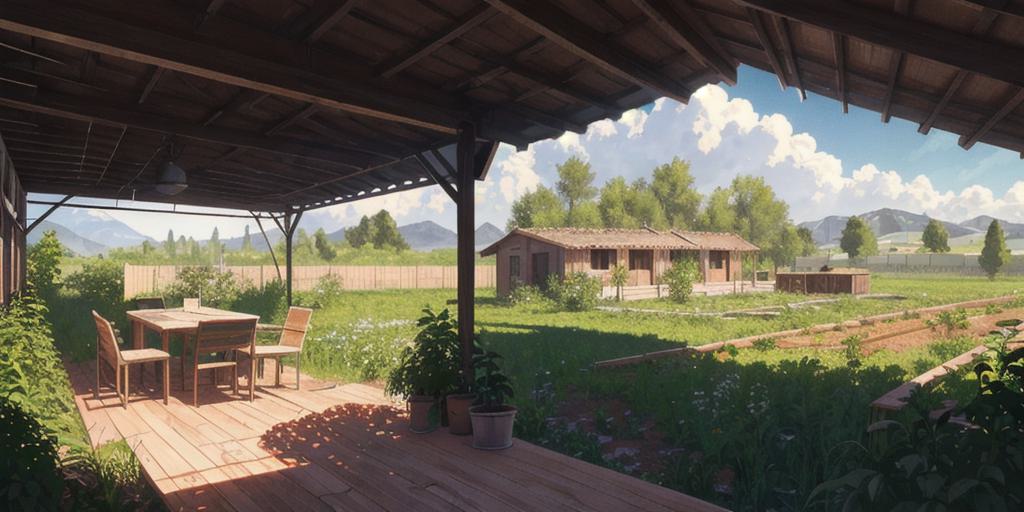
Sowing the Seeds of Self-Sufficiency
Imagine that your life is a startup, and your ultimate goal is a lifestyle of self-sufficiency. Just as a digital startup needs to nurture its core product, you too will need to nurture the seeds of your sustenance, turning your off-grid dreams into a tangible reality. The key is to utilise the resources available to you, much like an eagle-eyed entrepreneur spotting a gap in the market.
In the sun-kissed landscapes of Spain, the soil is an underutilised resource ripe with potential. From tomatoes to potatoes, peppers to peas, the land offers a bounty of opportunities for the aspiring self-sufficient farmer. Planting a vegetable garden is one of the first steps you can take towards living off the land and reducing your reliance on supermarkets.
Permaculture: The Art of Ecosystem Design
Permaculture, a system of agricultural and social design principles centered around simulating or directly utilizing the patterns and features observed in natural ecosystems, can be your blueprint for a sustainable off-grid lifestyle. It’s the software to your hardware, the strategy to your execution, the rhythm to your dance with nature.
Consider your off-grid farm as a living, breathing ecosystem. Every plant, every animal, every insect plays a crucial role in this intricate web of life. Designing your farm with permaculture principles allows you to create a self-sustaining system that mimics nature, reducing your workload and increasing your yield.
For instance, integrating animals into your farm can help control pests, fertilize the soil, and provide a source of food. A chicken can be your natural pest control, diligently picking off insects that might harm your crops. A goat can be your living lawnmower, helping to control weeds and providing milk in return. The art of permaculture design lies in understanding and leveraging these symbiotic relationships.
Preserving the Bounty: The Off-Grid Pantry
Just as a digital entrepreneur leverages tools to automate processes, an off-grid farmer can use preservation techniques to extend the shelf life of their harvest. Canning, smoking, drying, fermenting – these are not just preservation methods; they are your tools for creating an off-grid pantry.
Imagine opening a jar of home-canned tomatoes in the middle of winter, the taste a vivid reminder of summer’s bounty. Or pulling out a jar of homemade sauerkraut, teeming with beneficial bacteria that support your gut health. This is the essence of off-grid living – a deep connection with the food you eat, a sense of satisfaction in knowing you produced it, and the joy in sharing it with others.
So, whether you’re hoping to escape the 9-5 grind, reconnect with nature, or simply seeking a healthier, slower pace of life, growing your own food in Spain for off-grid living is a journey worth embarking on. Remember, in the realm of off-grid living and self-sufficiency, it’s not just about surviving, but thriving.
Community and support networks for off-grid living in Spain
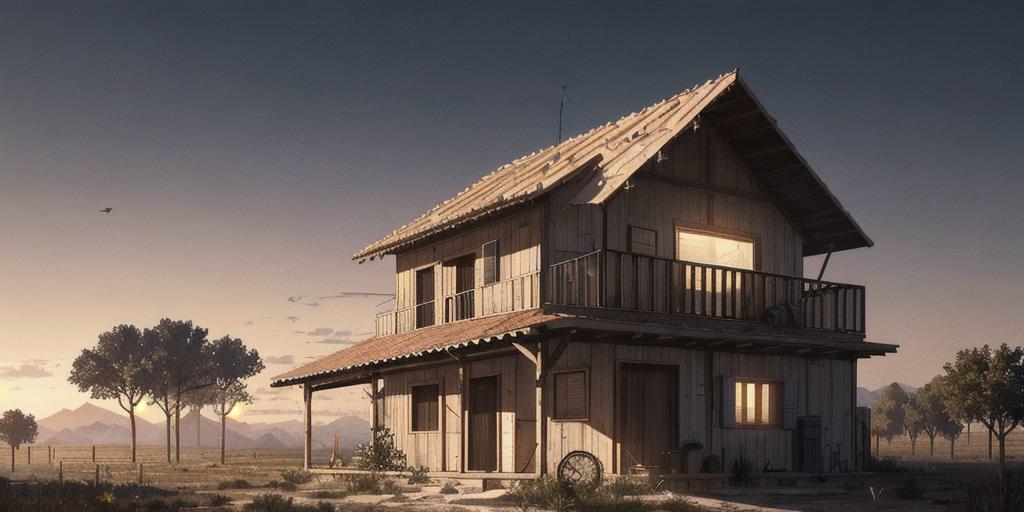
The Networked Off-Grid Village: A Digital Oasis
Living off-grid in Spain isn’t about isolation, but rather about fostering interconnectedness with both the natural world and a supportive community. Just as the internet has transformed our world into a global village, off-grid living can create a networked village of like-minded individuals, each contributing their unique skills and resources to a collective pool.
This concept draws from the SureNexus project, a collaborative effort that blends traditional knowledge with innovative technologies. It’s about creating a synergistic ecosystem where each element – be it a permaculture garden, a solar power system, or a community member – serves a specific role and contributes to the overall health and vitality of the community. Much like the interconnected networks of grassroot community projects fostered by SureNexus, off-grid communities in Spain can cultivate their own networks of support and knowledge sharing.
The Library of Shared Knowledge: Nurturing the Collective Wisdom
Imagine a community library, not just of books, but of shared knowledge, experiences, and wisdom. This is the vision of the reimagined library spaces, a place where information is freely exchanged and knowledge is collectively owned. This concept can be adapted to the off-grid lifestyle, creating a communal knowledge bank that aids in navigating the challenges of self-sufficient living.
Perhaps a member of the community has a knack for natural pest control methods. Another might have honed the art of preserving the bounty of the harvest. By pooling this collective wisdom into a shared “library”, every member of the community benefits. After all, knowledge is the most abundant resource we have, and sharing it freely only serves to enrich us all.
Off-Grid Power: Harvesting the Sun
In the sunny landscapes of Spain, solar power is a viable and sustainable option for off-grid living. Companies like WAGA are providing solar lamps, power banks, and mini-power walls, offering a clean and affordable way to harness the power of the sun.
But going off-grid doesn’t mean going offline. With the right setup, you can maintain your internet connection, allowing you to work remotely, stay connected with your network, and continue learning and growing. Thanks to solar power, the dream of living off-grid while remaining part of the digital world is within reach.
Remember, off-grid living isn’t a step back from society, but rather a step towards a more sustainable, interconnected, and intentional way of living. It’s about creating a community that thrives on shared knowledge, mutual support, and a deep connection with nature.
Building and renovating off-grid homes in Spain
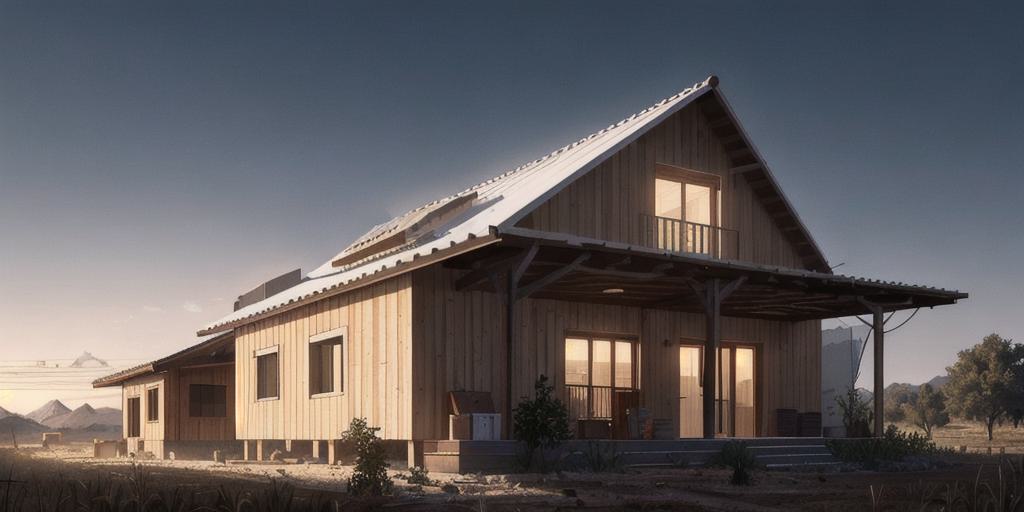
Harmony in Design: Merging with the Landscape
Imagine a home that doesn’t just sit on the land, but is a part of it. This is the magic that architecture studio Mar Plus Ask has conjured up in the Tramuntana mountains of Mallorca, Spain. The Olive Houses are a testament to the synergy of design and nature, a silent refuge where creatives can escape to, and indeed become one with, the untouched beauty of the landscape.
This is the off-grid dream: a home that doesn’t just respect the land, but embraces it, becoming a part of the terrain. The studio took great pains to ensure that their design added to the land in a respectful and beautiful way, echoing the structures found in the area. The houses are partially embedded into an existing stone terrace, blending seamlessly with the craggy boulders and thousand-year-old olive trees that characterize the landscape.
But it’s not just about the exterior. Inside, the houses are a study in thoughtful design and resourcefulness. The walls, floor, and ceiling have been exclusively rendered in blush-pink stucco, a color chosen for its harmony with the pale green of an olive tree leaf. This attention to detail extends to every corner of the house, even incorporating a craggy boulder as a piece of art, illuminated by a skylight directly above.
Reinventing the Old: Renovation as Innovation
The second house built by Mar Plus Ask is a testament to the power of renovation and innovation. Once a dilapidated shed used to store tools, it has been transformed into a cozy, off-grid home. The interiors are covered in deep-purple stucco, a hue reminiscent of the dark, glossy topside of an olive leaf. This renovation is a beautiful example of how we can breathe new life into old structures, turning them into functional, sustainable spaces.
Despite the structure’s initial limitations, the studio carved a wide opening into one of its 60-centimetre-thick walls, accommodating a prep counter and a sink. This innovative design solution is a reminder that living off-grid doesn’t mean compromising on comfort or functionality. With creativity and resourcefulness, we can create spaces that are both practical and respectful of the environment.
A Community of Creatives: Living Off-Grid, On-Purpose
The Olive Houses aren’t just off-grid homes; they’re a community. They offer a sanctuary for architects, writers, and artists seeking a quiet escape, a place where they can tune out the noise of the world and tune into their creativity. This is the beauty of off-grid living: it offers not just a change of scenery, but a change of pace, a chance to live slower, to live more intentionally, to live on-purpose.
These houses are proof that off-grid living isn’t about isolation, but connection. Connection with the land, with the environment, with our creativity, and with each other. They’re a nod to the power of community, the collective wisdom of shared experiences, and the transformative power of living in harmony with nature.
Off-grid living in Spain: Legal considerations and regulations
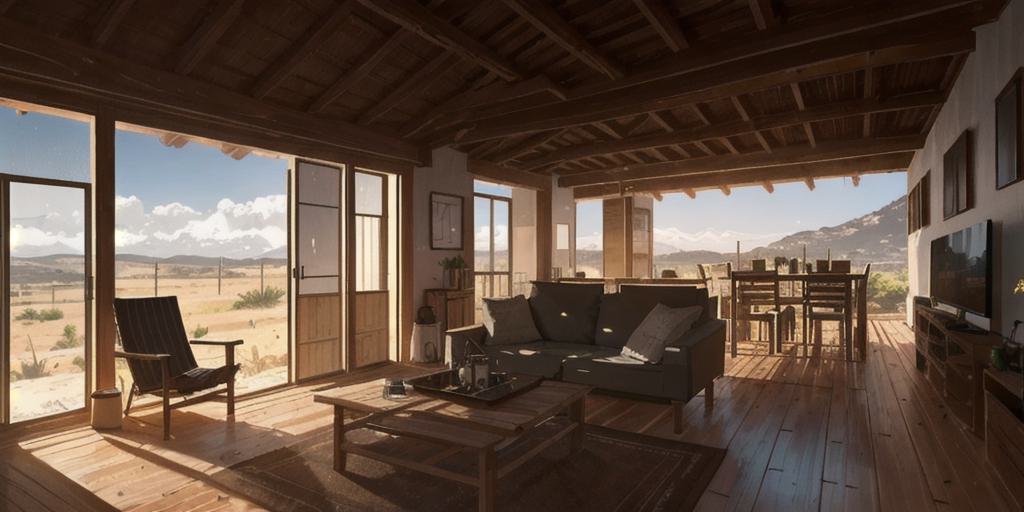
Navigating the Legal Maze: Off-grid Living Regulations in Spain
So, you’ve caught the vision of a life intertwined with the rhythms of nature, free from the mechanical tick-tock of the 9-to-5 grind. But as with any great journey, the path to off-grid living in Spain is scattered with legal considerations, making it essential to navigate with due diligence. Off-grid living is not a lawless pursuit, rather it requires an enlightened understanding of the legal landscape.
Spain’s legal framework for off-grid living is not designed to hinder, but rather to protect. To protect the environment, the individual, and to maintain a harmonious balance within the wider community. It is a dance of respect and responsibility, a delicate balance between independence and interdependence.
Building Permissions & Land Use
First, let’s talk land. The acquisition of land in Spain comes with a set of permissions and restrictions, determined by the zoning regulations. It’s important to understand that not all land is created equal. Rural, agricultural, and protected lands all have their unique set of rules. The dream of building a home nestled in an ancient olive grove might be romantic, but it’s crucial to explore the permissions associated with your plot of paradise.
Building permissions in Spain are typically governed by the local municipality, and the rules can vary widely. It’s recommended to seek local advice before making any significant investments. Remember, building permits aren’t just bureaucratic red tape, they’re a way of ensuring that your off-grid dream aligns with the environment and the local community.
Energy, Water, and Waste Management
When we step off the grid, we step into a new relationship with resources. We become custodians of our own energy, water, and waste. The Spanish government supports renewable energy and off-grid systems, but there are still regulations to consider. Solar panels, wind turbines, and other renewable technologies are welcome, but they’re not without their paperwork.
Water management is also a crucial aspect of off-grid living. In Spain, rules regarding water collection and usage are stringent to protect the precious resource. Waste management, too, is regulated, ensuring that the dream of off-grid living doesn’t turn into an environmental nightmare. These regulations aren’t hurdles, but stepping stones to a sustainable off-grid life.
Yes, there’s a lot to consider when stepping off the grid in Spain. But remember, these considerations aren’t roadblocks on the path to freedom, but signposts guiding you to a sustainable, harmonious existence with nature. So, embrace the journey. It’s a path that leads not just to a new way of living, but a new way of being.
Natural and organic building materials for off-grid homes in Spain
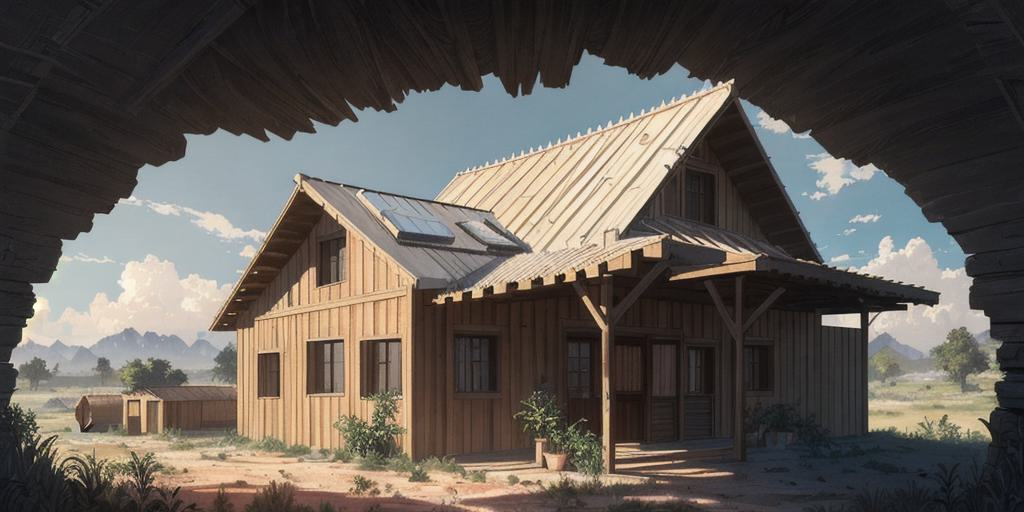
Embarking on the Earthship: A Sustainable Blueprint
Imagine a home that is not only a sanctuary from the demands of contemporary life but is also a living, breathing entity in itself. A home that harnesses the cycles of nature and the bounty of the Earth to provide a self-sustainable lifestyle. This is no utopian dream, but the reality of living in an Earthship.
Inspired by the pioneering work of American architect Michael Reynolds, Earthships are the eco-friendly answer to the modern housing crisis. Built mainly from natural and repurposed materials, these homes are designed to be self-sufficient, minimizing reliance on public utilities and fossil fuels. (source)
One of the core materials used in their construction is tires, packed tightly with rammed-earth. These act as perfect thermal mass bricks, storing heat during the day and releasing it at night. The design incorporates plenty of windows on the southern side and skylights on the roof, ensuring maximum solar gain. Even in the Spanish summers, the interior temperature remains balanced thanks to natural ventilation systems such as buried cooling tubes and operable vent boxes.
Resourceful and Resilient: The Earthship Lifestyle
Living in an Earthship is not just about the building itself, but about embracing a lifestyle that is in tune with nature’s rhythms. The design of these houses reflects a deep understanding of the natural world and the human place within it.
Water is collected from rain and snowmelt, stored, filtered, and heated using a solar system, and then used for all domestic needs. The grey water from bathing and washing is then stored in interior botanic cells where it is purified by plants and reused for flushing toilets and watering exterior landscaping plants.
The energy requirements of an Earthship are minimal and can be met almost entirely using solar panels and small windmills. This reduces reliance on fossil fuels, aligning your lifestyle with the rhythms of the natural world.
Even food production is integrated into the Earthship lifestyle. A variety of organic food can be grown year-round using innovative growing systems like mini hydroponic planters. This not only reduces dependence on external food supplies but also contributes to a healthier, more balanced diet. (source)
The Investment and the Return
The investment in an Earthship is not just a financial one. It’s an investment in a lifestyle that is in harmony with the planet. It’s a commitment to a slower pace of life, to growing your own food, harnessing your own energy, and being a steward of your own resources.
Financially, the cost of an Earthship can be comparable to a conventional home. However, the reduced utility bills and the potential to build much of the home yourself can make it a more cost-effective option in the long run. And beyond the monetary considerations, the benefits of a healthier, more balanced lifestyle are priceless.
As our world continues to grapple with environmental challenges, the Earthship presents a hopeful vision of a sustainable future. It’s a testament to human ingenuity and a reminder of our deep connection with the natural world. Are you ready to embark on your Earthship journey? (source)
Off-grid living in Spain: A lifestyle choice or a necessity?
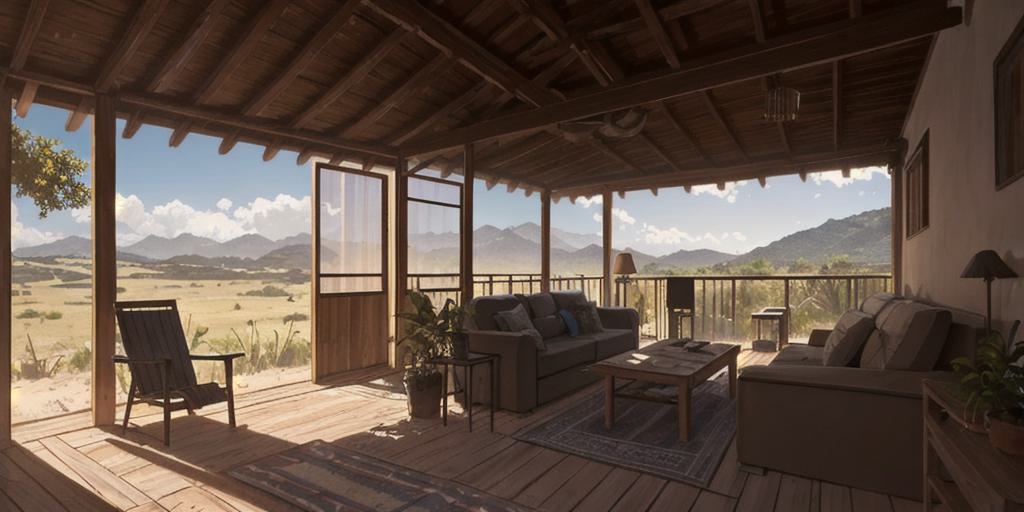
Off-grid Living in Spain: A Lifestyle Choice or a Necessity?
When you think about living off the grid in Spain, what comes to mind? Perhaps you envision a rustic cabin nestled in the Spanish hills, solar panels gleaming in the sun, an organic garden flourishing in the backyard. Or maybe it’s not just a lifestyle choice for you but a necessity—a way to break free from the constraints of a system that seems increasingly out of sync with your values and aspirations.
Embracing the Off-Grid Ethos
Going off-grid is not just about disconnecting from the public power grid. It’s about embracing a broader ethos—an ethos of self-reliance, sustainability, and resourcefulness. It’s about redefining your relationship with nature and with society. It’s about choosing to live according to your own values and priorities, rather than the expectations imposed by mainstream culture.
Living off-grid in Spain, you might choose to generate your own electricity using solar panels or wind turbines, collect rainwater for your household needs, grow your own food in a permaculture garden, or even build your own home using natural and recycled materials. But it’s not just about the physical infrastructure. It’s also about developing the skills, knowledge, and mindset needed to live sustainably and independently.
The Path to Self-Reliance
Living off the grid in Spain is a journey, not a destination. It requires patience, resilience, and a willingness to learn from your mistakes. But the rewards can be immense. Imagine waking up each morning to the sound of birdsong, rather than the drone of traffic. Imagine savoring the fruits of your labor in the garden, rather than the sterile taste of supermarket produce. Imagine the satisfaction of knowing that you are living in harmony with the planet, rather than contributing to its destruction.
Of course, going off-grid does not mean rejecting all modern conveniences. Many off-gridders in Spain still enjoy the benefits of internet access, allowing them to work online, stay connected with friends and family, and access the wealth of information and resources available in the digital world. What it does mean is choosing which technologies serve your needs and values, and which ones distract from the life you want to live.
So is off-grid living in Spain a lifestyle choice or a necessity? The answer is both. It’s a choice to live according to your own values and priorities. But it’s also a necessity in a world where the current model of consumption and growth is proving to be unsustainable. Whether you’re driven by the desire for a simpler, healthier lifestyle, or by the need to adapt to a changing world, going off-grid is a journey worth considering.
Embracing the Off-Grid Life in Spain
Off-grid living in Spain is not just about disconnecting from the power grid, but about creating a sustainable lifestyle that aligns with your values. Whether you choose to live in the rural countryside or the urban cityscape, the key is to create a life that resonates with your inner compass.
Choosing to live off-grid is not a decision to be taken lightly. It requires careful planning, especially when it comes to financial and legal considerations. The transition to off-grid living is not just a lifestyle adjustment, but it also involves a significant shift in your financial habits. Like the algorithm of an online business, the initial input is substantial, but the returns, in terms of savings and sustainability, are exponential over time.
Living off-grid in Spain offers a variety of sustainable energy options. By strategically investing in solar and wind energy, and leveraging interconnectivity, you can create a self-sufficient lifestyle that aligns with nature while also keeping up with the digital world.
Water management is a crucial aspect of off-grid living. In Spain, rules regarding water collection and usage are stringent to protect the precious resource. Similarly, waste management is regulated, ensuring that the dream of off-grid living doesn’t turn into an environmental nightmare.
Whether you’re hoping to escape the 9-5 grind, reconnect with nature, or simply seeking a healthier, slower pace of life, growing your own food in Spain for off-grid living is a journey worth embarking on. This not only reduces dependence on external food supplies but also contributes to a healthier, more balanced diet.
Living off-grid in Spain isn’t about isolation, but rather about fostering interconnectedness with both the natural world and a supportive community. Just as the internet has transformed our world into a global village, off-grid living can create a networked village of like-minded individuals, each contributing their unique skills and resources to a collective pool.
Spain’s legal framework for off-grid living is not designed to hinder, but rather to protect. To protect the environment, the individual, and to maintain a harmonious balance within the wider community. It is a dance of respect and responsibility, a delicate balance between independence and interdependence.
Off-grid living in Spain presents an opportunity to redefine what it means to be a part of society. It is a testament to human ingenuity and a reminder of our deep connection with the natural world. It’s about making a conscious choice to live in accordance with your values, to cultivate self-reliance, and to redefine what it means to be a part of society.
So is off-grid living in Spain a lifestyle choice or a necessity? The answer is both. It’s a choice to live according to your own values and priorities. But it’s also a necessity in a world where the current model of consumption and growth is proving to be unsustainable. Whether you’re driven by the desire for a simpler, healthier lifestyle, or by the need to adapt to a changing world, going off-grid is a journey worth considering.